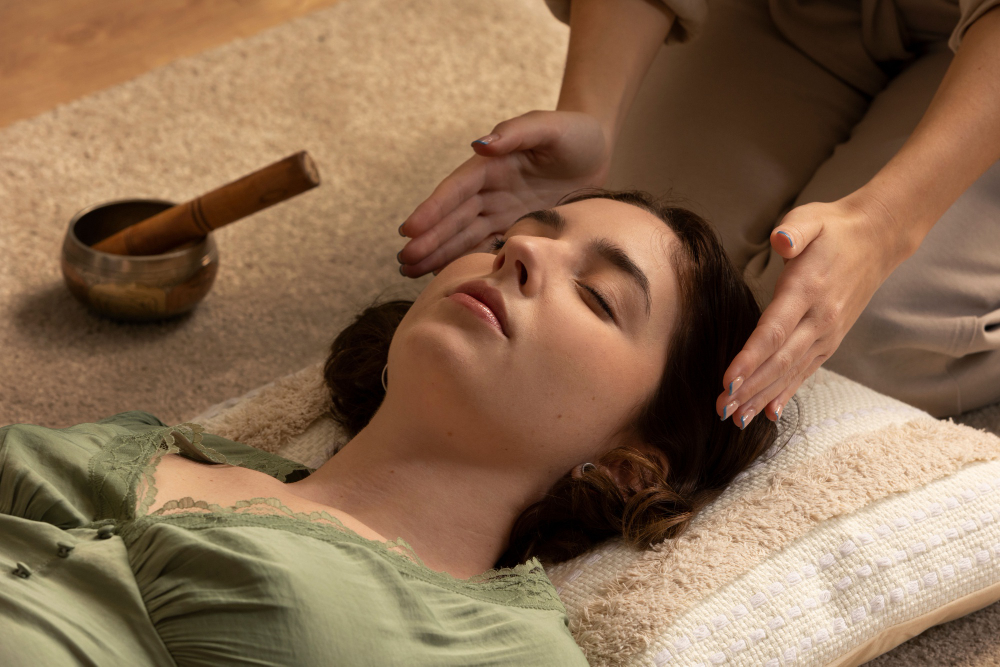Have you read the report on hypertension by WHO? The premier international organisation, monitoring the health aspects of the global population created a storm when it released its report titled ‘Global Report on Hypertension: The Race against a Silent Killer’. The report underscores a point that has remained hidden for a long time – hypertension is about to consume half the people in the world!
The scary figures mentioned in the report should serve as an early warning to people across the globe – make amends in lifestyle or else face the consequences of high blood pressure. In this context, it has become critical for humanity to do some introspection and get preventive treatment right away. This article will talk about the disorder and explore the benefits of Ayurvedic treatment for hypertension.
The silent killer that is hypertension
What the report says is quite frightening when you observe it closely. It says that almost half the world’s population (46%) is simply unaware that it’s suffering from hypertension! Probably, many haven’t even heard about hypertension. The first step in the fight against hypertension is to be aware of what the disorder is and its symptoms. Based on this awareness you can either consult a homoeopathic doctor in Sydney or get an Ayurveda therapy.
Hypertension is a condition in which the blood pressure is consistently higher than the threshold of 140/90 mm HG. Here are some key facts and figures associated with hypertension:
- Number of people suffering from hypertension: about 1.28 billion
- Adults unaware of their condition worldwide: 46%
- Adults who get timely diagnosis and treatment: 42%
- People who have hypertension under control: 21% (Just 1 in 5 adults)
Causes of hypertension
There are multiple reasons a person can suffer from persistent high blood pressure. If the systolic blood pressure reading touches 180, it calls for immediate medical intervention. Following are the major causes of hypertension:
- Alcohol and Tobacco: Excessive consumption of alcohol along with smoking leads to high blood pressure. Alcohol and tobacco inhibit your sleeping rhythm, making your heart pump blood faster. This puts pressure on the blood vessels causing the pressure to rise.
- Excessive Salt Consumption: Indulging in an unhealthy diet containing a lot of salts can elevate your blood pressure. Fast food items like pizza, burger, and french fries are full of salts that increase the sodium concentration in blood. Increased sodium concentration is directly responsible for increased blood pressure.
- Obesity: Consuming more calories than needed on a regular basis leads to obesity. The heart then needs to pump more blood to sustain your body. This has a negative impact on your internal organs as high blood pressure can cause damage to kidneys.
- Old age and sedentary lifestyle: With progressing age, the heart becomes weaker and the blood pressure fluctuates. Elderly people regularly suffer from high blood pressure. It’s the same with individuals who live a sedentary life. They don’t burn enough calories to maintain their weight and thus suffer from increased blood pressure.
One major reason why so many people remain unaware of the problem is that hypertension does not show any symptoms normally. However, if the pressure is too high (180/120) you may experience the following symptoms and may need the assistance of a homoeopathic doctor in Sydney.
- chest pain
- blurred vision
- dizziness
- confusion
- buzzing ear
How does Ayurveda fare in treating hypertension?
The ancient Indian system of medicine, Ayurveda, has all the answers to hypertension. In many ways it is the best defence against high blood pressure. Getting an Ayurvedic treatment for hypertension would be highly useful as it’s a holistic preventive treatment. Here we discuss two of the most effective Ayurvedic therapies that could prove lifesaving to those susceptible to high blood pressure.
1. Abhyanga: Abhyanga is a therapeutic oil massage that involves the application of warm, medicated oils to the body. It is known for its relaxing and rejuvenating properties.
Role in Hypertension Treatment:
Abhyanga can help reduce stress and promote relaxation, which is crucial for managing hypertension, as stress is a common contributor to high blood pressure. The soothing effect of Abhyanga on the nervous system can help in regulating blood pressure by calming the mind and reducing anxiety.
2. Panchakarma: Panchakarma is a comprehensive detoxification and purification process in Ayurveda. It involves a series of therapies to remove toxins from the body and balance the doshas (energetic forces) to promote overall health and well-being.
Role in Hypertension Treatment:
Ayurveda recognises that high blood pressure is a result of toxin accumulation in the body, particularly in the circulatory system. Panchakarma aims to eliminate these toxins.
The therapies involved in Panchakarma, such as Virechana (therapeutic purgation) and Basti (enema), help in detoxifying the body and improving the functioning of various systems.
Key Takeaway
Hypertension is a serious condition, as poignantly reminded by the recent WHO report. It needs to be prevented at all costs as half the global population stands at the risk of high BP related problems. It can be effectively prevented with an Ayurvedic treatment for hypertension. Consult an experienced Ayurvedic practitioner if your blood pressure readings are above the threshold. Getting an Ayurvedic treatment at the first signs of hypertension is better than going for a curative treatment.

